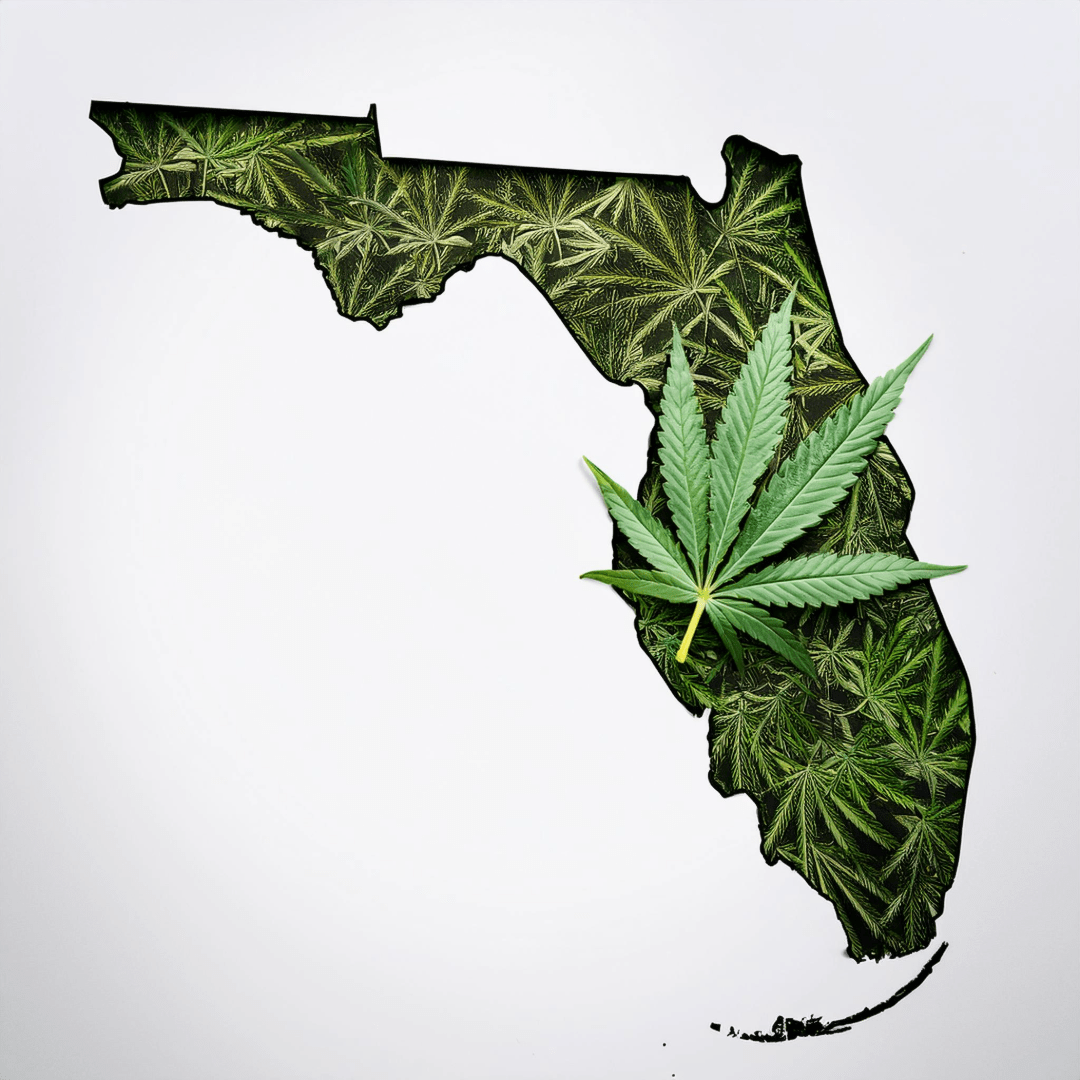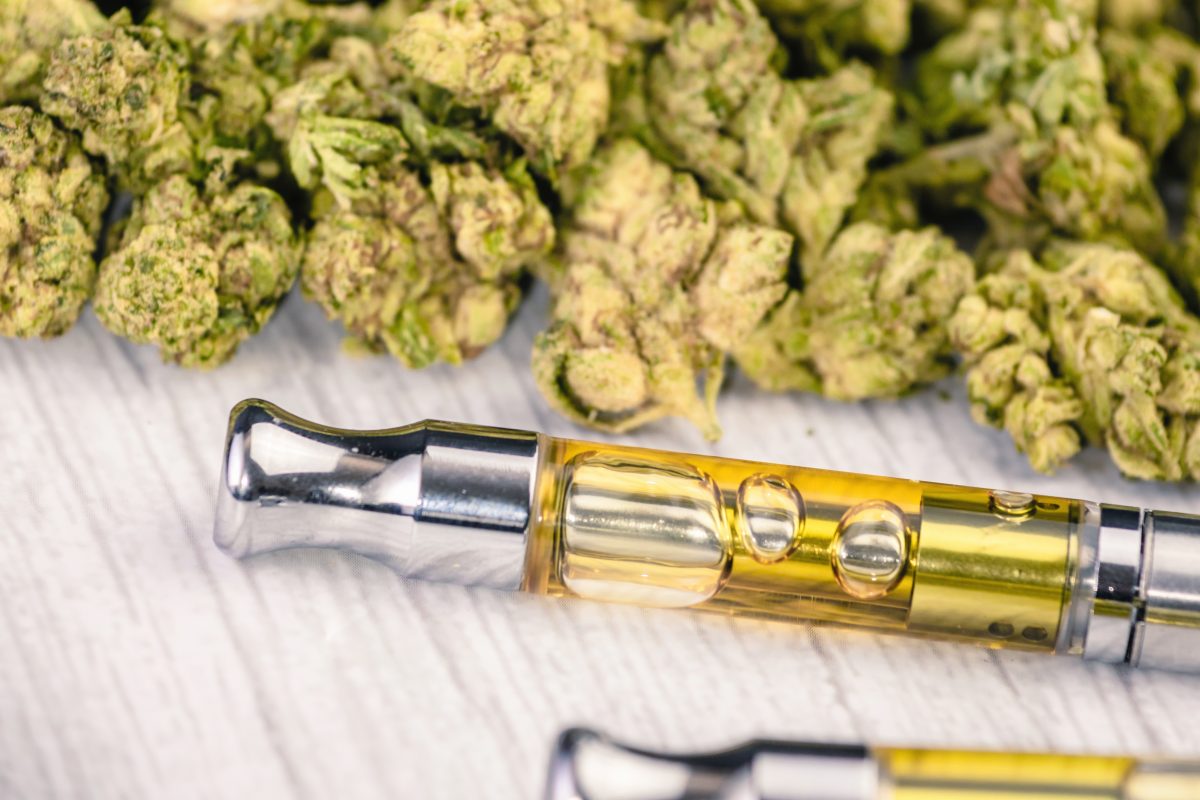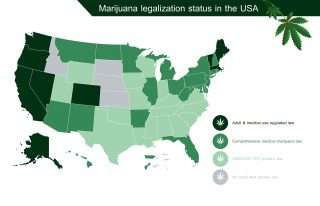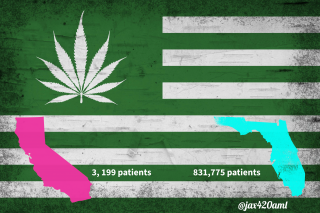Florida voters delivered a decisive verdict on Amendment 3, rejecting the proposed cannabis legalization measure despite a massive $143 million campaign investment. The ballot initiative failed to reach the required 60% threshold, marking a significant setback for cannabis reform advocates in the state.
The rejection of Amendment 3 highlights the complex relationship between Florida voters and cannabis policy reform. From medical marijuana regulations to the state’s unique supermajority requirement for constitutional amendments, multiple factors influenced this outcome.
The Political Battle Behind Amendment 3
The political battle surrounding Amendment 3 emerged as one of Florida’s most expensive ballot measure campaigns in history, characterized by intense opposition from state leadership and unprecedented campaign spending.
Trulieve’s $143 Million Campaign Investment
Smart & Safe Florida, the group behind Amendment 3, mounted an extraordinary campaign largely funded by Trulieve, Florida’s largest medical marijuana operator. The company invested an unprecedented $143 million, representing approximately 94% of the total campaign funds. This massive investment aimed to secure the 60% voter approval needed for the constitutional amendment’s passage.
DeSantis’s Opposition Strategy
Governor Ron DeSantis orchestrated a comprehensive opposition campaign, mobilizing state resources and agencies in an unprecedented manner. His strategy included:
- Department of Juvenile Justice
- Department of Children and Families
- Florida Department of Law Enforcement
- Department of Highway Safety and Motor Vehicles
- Department of Health
The governor’s campaign focused on portraying the amendment as a corporate power grab, with particular emphasis on Trulieve’s dominant market position. State agencies launched targeted initiatives, including public service announcements about marijuana-related driving risks and health advisories from the State Surgeon General.
Key Political Stakeholders and Their Positions
The amendment created unusual political alignments, crossing traditional party lines. Former President Donald Trump, a Florida resident, notably broke with DeSantis by endorsing Amendment 3, stating he would vote in favor of the measure. This support highlighted the complex political dynamics at play.
The Florida Republican Party, represented by chairman Evan Power and executive director Bill Helmich, maintained connections to the hemp industry while opposing the amendment. Meanwhile, bipartisan support emerged from unexpected quarters, with both Republican Senator Joe Gruters and Democratic Senator Shevrin Jones pledging to sponsor future cannabis legislation.
The campaign messaging battle intensified as election day approached, with Smart & Safe Florida releasing strategic advertisements featuring both Trump and Vice President Kamala Harris supporting marijuana reform, demonstrating the issue’s ability to transcend traditional political divisions.
Understanding Florida’s 60% Threshold
The unique 60% threshold requirement for constitutional amendments in Florida stands as one of the most stringent voting requirements in the United States, significantly impacting the fate of numerous ballot initiatives, including Amendment 3.
History of Florida’s Supermajority Requirement
The path to Florida’s current supermajority requirement began in 2006, when voters approved a measure to increase the passage threshold from a simple majority to 60%. Ironically, this very amendment passed with only 58% of the vote – a percentage that wouldn’t meet today’s standard. The change emerged as a response to several controversial amendments in the early 2000s, including the notable “pregnant pig” amendment of 2002, which many legislators felt didn’t belong in the state’s constitution.
Impact on Previous Ballot Initiatives
The 60% threshold has proven to be a formidable barrier for numerous ballot measures. In the 2024 election alone, four amendments received majority support but failed to reach the supermajority requirement. This pattern has affected various initiatives across the political spectrum, from medical marijuana proposals to environmental conservation measures. The requirement has transformed Florida’s political landscape, making it significantly more challenging for citizen-led initiatives to modify the state constitution.
Comparison with Other States’ Requirements
Florida’s constitutional amendment process stands out among U.S. states for its stringent requirements. While most states require a simple majority, Florida’s system differs notably:
- Most states require only 50% plus one vote
- Colorado maintains a 55% threshold
- Nevada requires majority approval in two consecutive elections
- Florida remains unique in requiring 60% for all constitutional amendments
The impact of this higher threshold becomes particularly evident when comparing successful ballot measures across states. While similar initiatives have passed in other states with simple majorities, Florida’s requirement has resulted in the defeat of measures that received substantial majority support but fell short of the 60% mark.
This stringent requirement has become increasingly relevant as more complex issues, like cannabis legalization and healthcare reforms, make their way to the ballot. Political analysts note that achieving such a high threshold requires broader coalition-building and significantly more resources than campaigns in other states, fundamentally altering how advocacy groups approach constitutional amendments in Florida.
Voter Demographics and Regional Analysis
Demographic analysis reveals striking patterns in how different groups of Florida voters approached Amendment 3, showcasing deep divisions across age, gender, and geographic lines.
Urban vs Rural Voting Patterns
A clear urban-rural divide emerged in the voting patterns, with metropolitan areas showing stronger support for cannabis legalization. Major urban centers like Miami-Dade, Broward, and Orange counties demonstrated notably higher approval rates compared to rural regions. Urban voters consistently supported the measure at rates between 58-62%, while rural counties typically showed support below 50%.
Age Group Voting Trends
The generational divide played a crucial role in the amendment’s outcome:
- Young voters (18-49): 69% support
- Middle-aged voters (50-64): 53% support
- Senior voters (65+): 47% support
This stark contrast in age-based voting patterns reflects broader generational attitudes toward cannabis reform, with younger Florida voters significantly more likely to embrace legalization.
Geographic Distribution of Support
Regional voting patterns revealed distinct geographical preferences across Florida’s diverse landscape.
Here’s how support varied by region:
|
|
|
| South Florida |
59% |
Strong urban support |
| Central Florida |
61% |
High youth turnout |
| North Florida |
52% |
Mixed urban-rural split |
| Panhandle |
48% |
Predominantly opposed |
Gender and ethnic demographics also played significant roles, with female voters showing 53% support compared to 43% among males. The amendment garnered overwhelming support from Black voters at 77%, while Hispanic voters were evenly divided at 49%. These demographic patterns largely mirror national trends in cannabis reform attitudes, though Florida’s unique population mix created distinct regional variations.
The county-level analysis shows particularly strong support in Leon County (65%), Monroe County (64%), and Gadsden County (64%), while more conservative counties like Holmes (39% support) and Lafayette (37% support) strongly opposed the measure. This geographic distribution closely aligned with traditional political boundaries but also revealed some surprising departures from historical voting patterns.
Economic Implications of the Rejection
The rejection of Amendment 3 sends ripples through Florida’s cannabis economy, forcing businesses and stakeholders to reassess their strategies in what remains the nation’s largest medical marijuana market.
Impact on Medical Marijuana Industry
The $2 billion medical marijuana industry in Florida faces a period of strategic realignment following the amendment’s defeat. Major operators like Trulieve, which operates nearly a quarter of the state’s 692 medical dispensaries, are now pivoting their expansion plans. Several businesses had already begun scaling up operations in anticipation of recreational legalization:
- Equipment orders and facility expansions being canceled or modified
- New hiring initiatives redirected to support medical market growth
- Investment strategies refocused on strengthening medical marijuana services
Industry experts suggest this setback might actually strengthen Florida’s medical marijuana program, as companies redirect their focus to serving the existing 800,000 registered patients more effectively.
Lost Tax Revenue Projections
The financial impact of Amendment 3’s rejection extends beyond corporate balance sheets to state coffers. According to state financial analysis, Florida will forgo significant potential tax revenues:
| Minimum Expected |
$195.6 million |
| Maximum Potential |
$431.3 million |
| Current Medical Market |
$2 billion |
These projections were based on sales tax collections from retail marijuana sales, with additional revenue potential from regulatory fees and associated business activities. The Florida Financial Impact Estimating Conference indicated these figures represented the lowest reliable estimates among various scenarios analyzed.
Future of Cannabis Reform in Florida
Despite Amendment 3’s defeat at the polls, cannabis reform in Florida continues to evolve through multiple channels, with lawmakers and industry leaders exploring alternative pathways to expand access and improve existing programs.
Potential Legislative Pathways
Senator Joe Gruters, who supported Amendment 3, has announced plans to file multiple cannabis-related bills for the 2025 legislative session. His proposed initiatives focus on:
- Exempting veterans from annual medical marijuana fees
- Exploring home cultivation options
- Implementing public consumption restrictions
- Addressing barriers in the current medical program
The legislative approach represents a shift from constitutional amendments to statutory changes, potentially offering more flexibility in implementation. Speaker-designate Daniel Perez has acknowledged that while members can file cannabis-related bills, any significant changes must align with Governor DeSantis’s position on marijuana policy.
Medical Program Evolution
Florida’s medical marijuana program, serving more than 800,000 registered patients, stands at a crucial crossroads. Industry leaders and lawmakers are discussing several improvements to the existing framework:
- Patient awareness of the medical program has increased during the Amendment 3 campaign, potentially leading to expanded participation.
- The focus has shifted to reducing barriers to entry while maintaining the program’s robust regulatory framework.
- Industry leader Trulieve, despite investing heavily in Amendment 3, remains committed to reform efforts. CEO Kim Rivers has expressed enthusiasm for working with state leadership on decriminalization measures and expanding safe access to cannabis.
- The company’s strategy now includes collaborating with lawmakers on incremental changes while maintaining the option for future ballot initiatives.
- The Department of Health continues to oversee the medical program’s expansion, with twenty-two additional licenses awaiting approval. This could bring the total number of licensed operators to 47, potentially improving access and competition within the medical market.
- Meanwhile, the hemp industry, represented by prominent Republican Party officials, seeks clearer regulations distinguishing their products from medical cannabis.
As Florida’s medical marijuana landscape continues to evolve, local providers play a crucial role in serving patients across the state. One such provider, Affordable Marijuana License, has made significant strides in Northeast Florida, serving an impressive 22,000 patients in the region.
Founded in 2018 by Dr. Rene Pulido, his team’s commitment to accessible and affordable medical marijuana services has made them a trusted name in the community.
If you are considering exploring medical marijuana as a treatment option in Northeast Florida, Affordable Marijuana License offers a wealth of experience and patient-focused care. Dr. Neal Verma and his team of qualified professionals can guide you through the process.
Click here to make an appointment, or call or text 904-586-0041 for more information.































